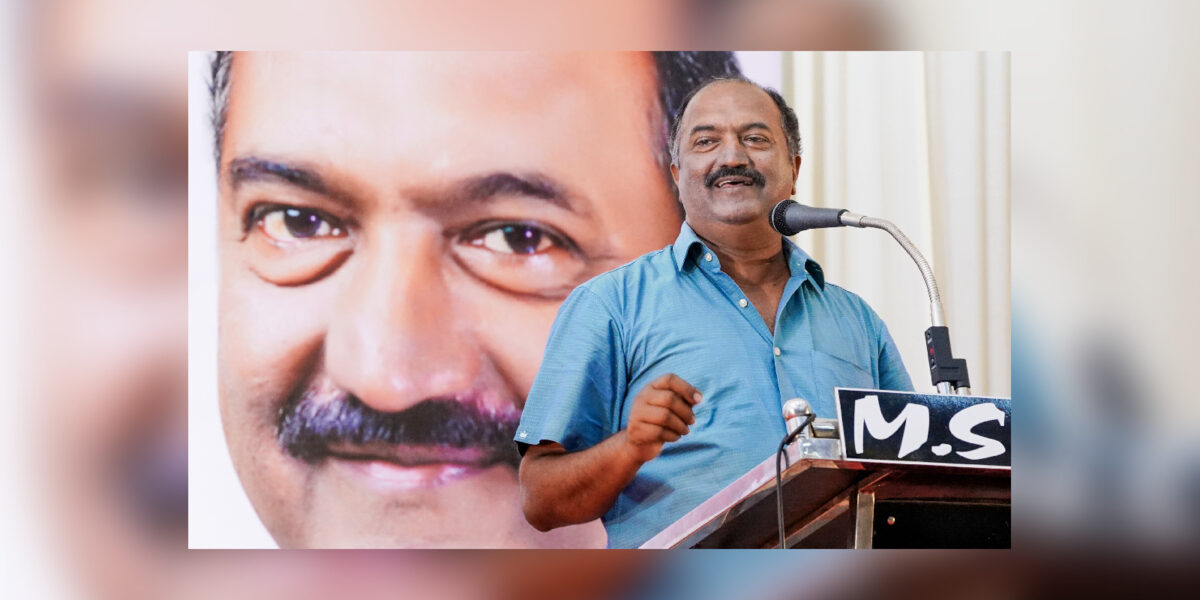Though Kerala claimed a record increase in its revenue, it is overshadowed by concerns over clearing arrears owed to pensioners and beneficiaries of various schemes.

Kerala Finance Minister KN Balagopal. (Twitter)
For some time now, Kerala has found itself walking a financial tightrope.
It is at this juncture that the claim of achieving a record increase in own revenue has come.
However, this celebratory tone is tempered by persistent concerns over the state’s struggles to clear arrears it owes to pensioners and beneficiaries of various social security schemes.
While the LDF government blames the BJP-led Union Government for squeezing state finances, the other side of the coin points to internal shortcomings that contribute to the strain.
It was on the occasion of the second Pinarayi Vijayan government’s third anniversary, on 21 May, that Finance Minister KN Balagopal revealed that the state achieved a record revenue increase, from ₹47,000 crore in 2020-21 to ₹77,000 crore in 2023-24.
He pointed out that the raise represents a 60 percent increase in the state’s tax revenue over just three years.
Balagopal said it has helped in mitigating the financial challenges posed by the BJP-ruled Centre to a certain extent.
“Without this increase, Kerala’s economy would have collapsed due to the central government’s anti-state policies,” he stated in a social media post.
However, the state government owes its employees, pensioners as well as beneficiaries of social security schemes thousands of crores.
As per sources, a whopping ₹37,500 crore stands as outstanding dearness allowance and pay revision arrears. It also owes crores to social security and welfare pensioners.
“Yes, these have been pending for some time now. But through installments, it is being disbursed,” a Finance Department official said.
The official then pointed out that, on 25 May, the government gave its nod to release an amount of ₹900 crore for the payment of one more pending installment of the social security and welfare pensions. The installment constitutes the pending payment for December 2023.
The finance minister said the state government is doing everything it can to handle the crisis caused by the Centre’s reduction in tax allocations and debt limits.
During a general discussion on the State Budget 2024-25 in the Assembly in February, Balagopal alleged that one of the reasons behind the Centre’s decision to reduce the borrowing limit was to facilitate more credit availability for the corporate sector.
“The Union Finance Minister (Nirmala Sitharaman) in her Budget speech said that the Union Government would reduce its borrowings by ₹1 lakh crore in the new financial year. Now, this borrowing space will be utilised by corporates,” he had said.
The state is of the stance that the decision to reduce the state’s borrowing limit severely restricts its financial autonomy. It also argued that this reduction is not just a fiscal matter but a political maneuver aimed at destabilising non-BJP-ruled states.
At the same time, the Principal Accountant General (Audit I), Kerala, in its State Finances Audit Report 2023, pointed out that, “If the (Kerala) Government continues to borrow year after year, it would lead to the accumulation of debt and the Government would have to pay more and more by way of interest.”
It further added, “These interest payments themselves contribute to the debt. Increase in debt over the years not only reduces the capital formation and growth but also acts as a burden on future generations.”
In 2022, an article by the Reserve Bank of India (RBI) warned that Kerala’s finances along with four other states—Bihar, Punjab Rajasthan, and West Bengal – are vulnerable to a variety of unexpected shocks that might alter their fiscal outcomes, causing slippages relative to their budgets and expectations and thus requires corrective measures.
The article was prepared by a team of economists under the guidance of RBI Deputy Governor Michael Debabrata Patra.
However, the state is of the stance that the central government’s fiscal policies have driven the state towards a financial crisis, and in a suit filed before the Supreme Court, last December, against the Centre, Kerala stated, “If damage is not prevented, the plaintiff (Kerala), with its meager resources, will not be able to recover from this for decades.”
The state had earlier made headlines as the first state to formally challenge the fiscal constraints imposed by the Union Government, taking its case to the Supreme Court which is now pending before a five-member Constitution Bench.
While Kerala blames the Centre for its fiscal crisis, there is another version that the state should also examine its own fiscal management.
Kerala which historically had high levels of public expenditure, driven by generous social welfare programmes also had problems like off-budget borrowings and fiscal extravagance in spending leading to mounting debt.
According to an official of the Finance Department, some problems, if addressed, could bring in considerable revenue to the state.
Some of the problems listed are evasion of taxes, leakage of revenue, not bringing more taxpayers into the tax net, lack of monitoring of the periodic collection of taxes, absence of prompt collection of arrears, protecting corrupt officials, not revising taxes of local bodies periodically, and others.
“The irony is that these problems are like an elephant in the room. Everyone knows about it, but no one wants to address it effectively,” the official said.
(Edited by Majnu Babu).

Jul 26, 2024

Jul 26, 2024

Jul 25, 2024

Jul 25, 2024

Jul 25, 2024

Jul 24, 2024